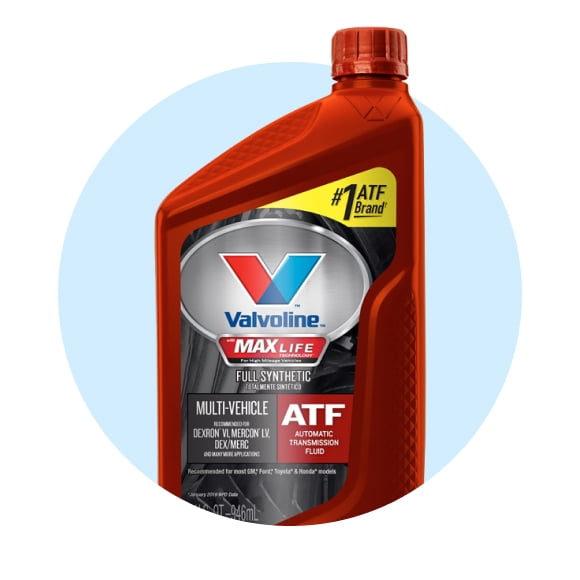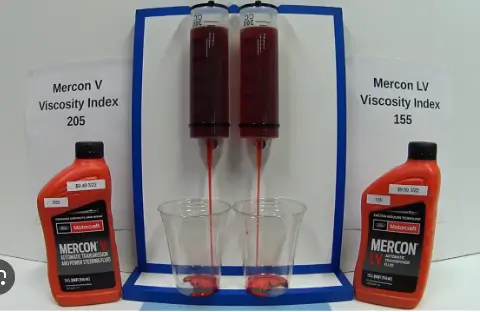No, Mercon LV is not the same as Mercon V. Mercon LV and Mercon V are two different types of automatic transmission fluids (ATFs) with different specifications and performance characteristics. Mercon LV is a newer formulation that meets the requirements of certain Ford vehicles, while Mercon V is an older specification that is compatible with a wider range of vehicles.
Understanding Transmission Fluids For Optimal Performance
When it comes to the smooth operation of your vehicle, transmission fluids play a vital role. These fluids not only provide lubrication to the moving parts of the transmission but also help in transferring power from the engine to the wheels. Therefore, it is of utmost importance to understand the significance of transmission fluids in maintaining your vehicle’s performance.
Importance Of Transmission Fluids In Vehicle Maintenance
In order to ensure the longevity and optimal performance of your vehicle, it is crucial to pay attention to proper maintenance, and transmission fluids form an integral part of it. These fluids play a critical role in protecting the transmission system from wear and tear caused by friction and heat.
They also aid in preventing corrosion and oxidation, which can damage the internal components of the transmission. Regularly checking and changing the transmission fluids can go a long way in preventing costly repairs and ensuring a smooth driving experience.
Role Of Transmission Fluids In The Smooth Operation Of A Vehicle
Transmission fluids act as a coolant for the transmission, preventing it from overheating during operation. They also help in reducing the friction between the moving parts, which in turn minimizes the wear and tear. Moreover, transmission fluids facilitate the smooth shifting of gears, enabling the driver to have a seamless driving experience. It is important to remember that using the right type of transmission fluid and maintaining the proper fluid level are key factors in optimizing the performance and longevity of your vehicle.
Common Types Of Transmission Fluids Available In The Market
When it comes to finding the right transmission fluid for your vehicle, it is essential to know the different types available in the market. Here are some common types:
| Type | Description |
|---|---|
| Mercon LV | High-quality fluid suitable for Ford vehicles, offering superior performance and protection. |
| Mercon V | Transmission fluid specifically designed for older Ford vehicles, offering excellent lubrication and stability. |
| Dexron III | A universal transmission fluid suitable for various domestic and import vehicles, known for its durability and compatibility. |
| ATF+4 | Transmission fluid recommended for Chrysler, Dodge, Jeep, and Ram vehicles, providing superior shift quality and protection. |
These are just a few examples of the types of transmission fluids available in the market. It is important to consult your vehicle’s owner’s manual or seek professional advice to determine the specific type of transmission fluid that is compatible with your vehicle. Remember, using the right transmission fluid and maintaining its proper level are vital for keeping your vehicle’s transmission in optimal condition.
Differentiating Mercon Lv And Mercon V Transmission Fluids
The choice of the right transmission fluid is essential to ensure the smooth operation and longevity of your vehicle’s transmission system. Two commonly used transmission fluids are Mercon LV and Mercon V. While they may sound similar, it is important to understand the differences between them to make an informed choice for your vehicle.
Brief Introduction To Mercon Lv And Mercon V
Mercon LV and Mercon V are both transmission fluids designed for use in automatic transmissions. These fluids are developed by the reputable automotive manufacturer Ford and offer specific performance characteristics suitable for Ford vehicles.
Analyzing The Composition And Specifications Of Mercon Lv
Mercon LV is a high-quality transmission fluid formulated to meet the stringent specifications set by Ford. It is a low-viscosity fluid designed to optimize fuel efficiency while providing excellent performance in a wide range of operating conditions.
- High oxidative stability
- Good low-temperature fluidity
- Outstanding thermal stability
- Excellent resistance to foaming
These specifications ensure smooth shifting, improved fuel economy, and enhanced protection against wear and tear.
Analyzing The Composition And Specifications Of Mercon V
Mercon V, on the other hand, is a transmission fluid primarily designed for older Ford vehicles. It offers excellent friction durability and can withstand the demands of heavy-duty use.
- Good viscosity stability
- Effective oxidation resistance
- Enhanced anti-shudder properties
- High resistance to sludge formation
These specifications are crucial for ensuring reliable performance in high-stress driving conditions.
Key Similarities And Differences Between Mercon Lv And Mercon V
While both Mercon LV and Mercon V are transmission fluids developed by Ford, there are some distinct differences between them. Here are the key similarities and differences:
| Aspect | Mercon LV | Mercon V |
|---|---|---|
| Viscosity | Low | Medium |
| Intended Use | Newer Ford vehicles | Older Ford vehicles |
| Performance | Emphasizes fuel efficiency | Provides excellent friction durability |
| Compatibility | Can replace Mercon V | Not recommended to replace Mercon LV |
Mercon LV is specifically formulated for newer Ford vehicles and is backward compatible, meaning it can be used to replace Mercon V. However, it is not recommended to replace Mercon LV with Mercon V due to the differences in performance characteristics.
Understanding the composition and specifications of Mercon LV and Mercon V enables you to make an informed decision when selecting the appropriate transmission fluid for your vehicle. Always refer to your vehicle’s manual or consult a professional to ensure you choose the right fluid for optimal performance and longevity of your transmission system.
Debunking Common Misconceptions About Mercon Lv And Mercon V
Mercon LV and Mercon V are two types of transmission fluids that are often a subject of confusion for car owners. While they both serve the same purpose of lubricating and cooling the transmission system, there are several misconceptions surrounding their interchangeability, compatibility, and performance.
In this article, we aim to debunk these misconceptions and provide you with a clear understanding of the differences between Mercon LV and Mercon V.
Addressing The Confusion Surrounding The Interchangeability Of Mercon Lv And Mercon V
One common misconception is that Mercon LV and Mercon V are interchangeable fluids, meaning you can use one in place of the other. However, this is not entirely accurate. It’s crucial to note that Mercon V is an older specification and is not backward compatible with Mercon LV. Ford, the manufacturer of these fluids, recommends using Mercon LV as the replacement for Mercon V in newer vehicles.
While they may have similar properties, such as viscosity, additives, and friction modifiers, Mercon LV has been specifically formulated to meet the specific requirements of newer automatic transmissions. Therefore, using Mercon V in a vehicle specified for Mercon LV could lead to potential transmission issues and even void warranties.
Highlighting The Compatibility Issues And Potential Risks Of Using The Wrong Transmission Fluid
Using the wrong transmission fluid can have serious consequences for your vehicle’s performance and longevity. Most modern vehicles with automatic transmissions require Mercon LV, and using Mercon V can result in improper shifting, reduced lubrication, and increased wear and tear on the transmission components.
Moreover, using the wrong fluid can lead to overheating of the transmission system, which can cause damage to internal parts, including clutches and bands. Replacing a damaged transmission can be a costly affair, so it is crucial to use the correct fluid to prevent these compatibility issues and potential risks.
Clearing Up Misconceptions Regarding Improved Performance Or Efficiency By Using One Fluid Over The Other
Some car owners believe that using a different fluid, such as Mercon LV instead of Mercon V, can enhance their vehicle’s performance or improve fuel efficiency. However, it’s important to understand that transmission fluids do not directly impact these factors.
The performance of an automatic transmission depends on various factors, including the design and condition of the transmission itself, rather than the specific brand or type of fluid used. While using the recommended fluid, such as Mercon LV, is essential for optimal transmission operation and longevity, it will not magically improve your vehicle’s performance or fuel efficiency beyond its original capabilities.
Ultimately, choosing the right transmission fluid and adhering to the manufacturer’s recommendations is crucial for maintaining the longevity and performance of your vehicle’s transmission system. By debunking these misconceptions, we hope to help you make informed decisions regarding the use of Mercon LV and Mercon V in your vehicle.

Choosing The Right Transmission Fluid For Your Vehicle
Choosing the Right Transmission Fluid for Your Vehicle
When it comes to maintaining and preserving the performance of your vehicle’s transmission, selecting the appropriate transmission fluid is crucial. The transmission fluid is responsible for lubricating the various components of the transmission to ensure smooth gear shifting and optimal performance.
In this article, we will take a closer look at Mercon LV and Mercon V, two popular transmission fluids, and determine if they are the same. We will also explore the factors to consider when selecting the appropriate transmission fluid, understand the manufacturer’s recommendations and specifications, and discuss alternatives to Mercon LV and Mercon V for specific vehicle models.
Factors To Consider When Selecting The Appropriate Transmission Fluid
When choosing the right transmission fluid for your vehicle, several factors should be taken into consideration. These factors will help ensure that you make an informed decision and select a transmission fluid that is compatible with your vehicle’s specific needs. Let’s explore these factors:
- Vehicle make and model: Different vehicle manufacturers may have specific requirements for transmission fluid. It is crucial to check the owner’s manual or consult the manufacturer’s recommendations to determine the appropriate type of transmission fluid to use.
- Transmission type: Automatic and manual transmissions may require different types of transmission fluid. It is important to know the type of transmission in your vehicle to select the right fluid.
- Driving conditions: Consider the type of driving you regularly engage in. If you frequently tow heavy loads or drive in extreme temperatures, you may need a transmission fluid that is specifically designed to handle such conditions.
- Fluid compatibility: Ensure that the transmission fluid you choose is compatible with the existing fluid in your transmission. Mixing incompatible transmission fluids can lead to performance issues and damage to the transmission.
Understanding The Manufacturer’s Recommendations And Specifications
Manufacturers spend years testing and researching to determine the best transmission fluid for their vehicles. It is essential to adhere to the manufacturer’s recommendations and specifications when selecting transmission fluid.
The owner’s manual or the manufacturer’s website usually provide detailed information on the type of transmission fluid recommended for your vehicle.
Deviating from these recommendations may lead to decreased performance, increased wear and tear, and potential damage to the transmission. Always consult the manufacturer’s guidelines to ensure you select the most suitable transmission fluid for your vehicle.
Exploring Alternatives To Mercon Lv And Mercon V For Specific Vehicle Models
While Mercon LV and Mercon V are commonly used transmission fluids, some vehicle models may have alternative recommendations. It is important to be aware of these alternatives to ensure you select the best fluid for your vehicle. Below is a table highlighting some alternative transmission fluids for specific vehicle models:
| Vehicle Model | Alternative Transmission Fluid |
|---|---|
| Toyota Camry | Toyota ATF Type T-IV |
| Honda Civic | Honda ATF DW-1 |
| Ford F-150 | Ford MERCON SP |
These alternative transmission fluids have been specifically formulated to meet the requirements of the mentioned vehicle models. Always refer to the manufacturer’s recommendations to ensure you select the most suitable transmission fluid for your vehicle.
Proper Maintenance And Care For Transmission Fluids
Proper maintenance and care for transmission fluids is crucial to ensure the optimal performance and longevity of your vehicle’s transmission. One of the key aspects of transmission maintenance is regular fluid changes and inspections.
By adhering to recommended intervals and following the necessary steps to care for your transmission fluids, you can maximize their lifespan, save on costly repairs, and have a smooth and trouble-free driving experience.
Importance Of Regular Transmission Fluid Changes And Inspections
Regular transmission fluid changes and inspections play a vital role in preserving the functionality of your transmission. Over time, transmission fluid can break down, become contaminated, and lose its effectiveness in lubricating and cooling the transmission components. This can lead to increased friction, heat buildup, and potential damage to the transmission.
By routinely changing the transmission fluid, you remove old, worn-out fluid and prevent harmful particles or debris from circulating in the system. Inspecting the fluid also allows you to identify any signs of trouble, such as discoloration, burnt smell, or metal shavings, which can indicate underlying transmission issues that require attention.
Recommended Intervals For Fluid Replacement And Maintenance
Understanding the recommended intervals for fluid replacement and maintenance is essential to keeping your transmission in optimal condition. The specific intervals may vary depending on the make and model of your vehicle, so it’s important to consult your owner’s manual or seek advice from a certified mechanic. In general, most manufacturers recommend changing transmission fluid every 30,000 to 60,000 miles or around every two to three years.
However, it’s worth noting that certain driving conditions, such as towing heavy loads, driving in extreme temperatures, or frequent stop-and-go traffic, can accelerate fluid degradation and necessitate more frequent changes. It’s always better to err on the side of caution and consult a professional for personalized recommendations based on your specific driving habits and conditions.
Steps To Properly Maintain And Care For Transmission Fluids
To maximize the lifespan of your transmission fluid and ensure optimal performance, it’s important to follow proper maintenance and care procedures. Here are some steps you can take:
- Regularly check the fluid levels and condition. Your owner’s manual will provide instructions on how to perform the fluid level check for your specific vehicle.
- Inspect the fluid for any signs of contamination. Healthy transmission fluid should typically be a clear, reddish color. If you notice a dark or murky appearance, it may be time for a change.
- Refer to your vehicle’s maintenance schedule for the recommended fluid change intervals and adhere to them accordingly.
- When changing the fluid, always use the manufacturer-recommended type and ensure it meets the necessary specifications.
- Properly dispose of the old fluid in an environmentally responsible manner. Many automotive parts stores or local disposal facilities offer proper disposal services.
- If you are unsure about performing fluid changes or inspections yourself, it’s always wise to seek the expertise of a certified mechanic who can efficiently and accurately handle the task.
By following these steps and incorporating regular fluid changes and inspections into your vehicle’s maintenance routine, you can ensure that your transmission fluid stays clean, properly lubricated, and free from contaminants. This will help prevent unnecessary wear and tear on your transmission and ultimately extend its lifespan, saving you from expensive repairs and replacements in the long run.
Frequently Asked Questions For Is Mercon Lv The Same As Mercon V
Is Mercon Lv The Same As Mercon V?
Mercon LV and Mercon V are similar but not the same. Both are automatic transmission fluids (ATF) used in Ford vehicles. Mercon LV is a newer version and has improved properties compared to Mercon V. It is backward-compatible with Mercon V but not the other way around.
Always check your vehicle’s manual for the recommended ATF type.
Can I Use Mercon Lv Instead Of Mercon V?
Yes, you can use Mercon LV instead of Mercon V in most Ford vehicles. Mercon LV is a newer and improved ATF that is backward-compatible with Mercon V. However, it is important to consult your vehicle’s manual to ensure suitability and compatibility.
Following the manufacturer’s recommendations is always recommended for optimal performance.
What Are The Differences Between Mercon Lv And Mercon V?
The main differences between Mercon LV and Mercon V are the improved properties of Mercon LV. Mercon LV offers better oxidation stability, anti-wear protection, and shear stability compared to Mercon V. It is designed to meet the specific needs of newer Ford transmissions and is backward-compatible with previous Mercon ATF specifications.
Can I Mix Mercon Lv With Mercon V?
It is generally not recommended to mix Mercon LV with Mercon V ATF. While both are compatible in terms of being used in the same transmission, it is best to use the ATF specified by the vehicle manufacturer. Mixing different ATF formulations may compromise the performance and protection of the transmission.
Always refer to the vehicle’s manual for the correct ATF recommendation.
Conclusion
To conclude, while Mercon LV and Mercon V are both automatic transmission fluids, they are not the same. Mercon LV has been formulated to meet Ford’s latest specifications and is backward compatible with older vehicles that require Mercon V. However, it is important to always consult your vehicle’s manufacturer recommendations to ensure you use the correct fluid.
Understanding the differences between these two fluids can help maintain the overall performance and longevity of your vehicle’s transmission.


Leave a Reply